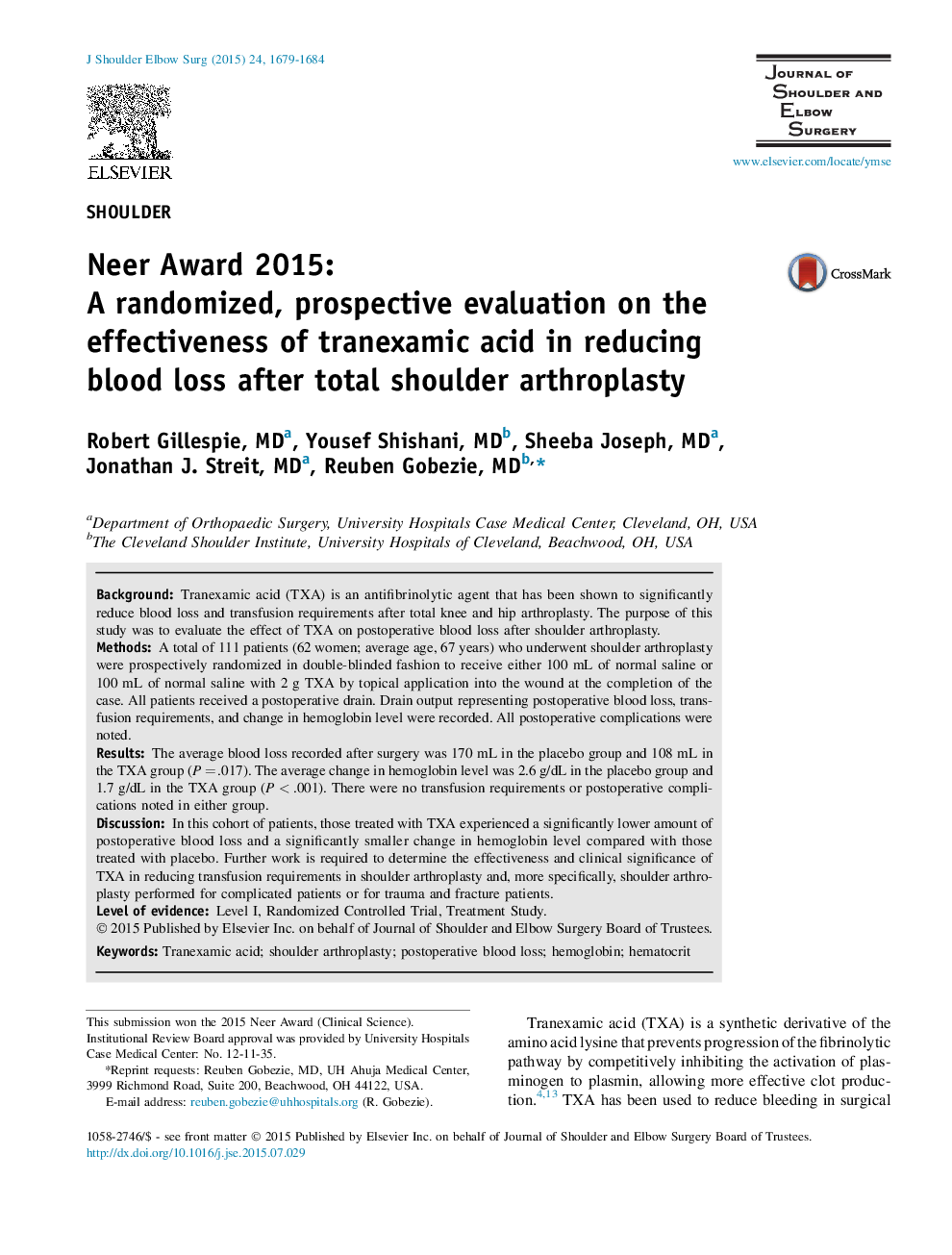| Article ID | Journal | Published Year | Pages | File Type |
|---|---|---|---|---|
| 4073252 | Journal of Shoulder and Elbow Surgery | 2015 | 6 Pages |
BackgroundTranexamic acid (TXA) is an antifibrinolytic agent that has been shown to significantly reduce blood loss and transfusion requirements after total knee and hip arthroplasty. The purpose of this study was to evaluate the effect of TXA on postoperative blood loss after shoulder arthroplasty.MethodsA total of 111 patients (62 women; average age, 67 years) who underwent shoulder arthroplasty were prospectively randomized in double-blinded fashion to receive either 100 mL of normal saline or 100 mL of normal saline with 2 g TXA by topical application into the wound at the completion of the case. All patients received a postoperative drain. Drain output representing postoperative blood loss, transfusion requirements, and change in hemoglobin level were recorded. All postoperative complications were noted.ResultsThe average blood loss recorded after surgery was 170 mL in the placebo group and 108 mL in the TXA group (P = .017). The average change in hemoglobin level was 2.6 g/dL in the placebo group and 1.7 g/dL in the TXA group (P < .001). There were no transfusion requirements or postoperative complications noted in either group.DiscussionIn this cohort of patients, those treated with TXA experienced a significantly lower amount of postoperative blood loss and a significantly smaller change in hemoglobin level compared with those treated with placebo. Further work is required to determine the effectiveness and clinical significance of TXA in reducing transfusion requirements in shoulder arthroplasty and, more specifically, shoulder arthroplasty performed for complicated patients or for trauma and fracture patients.
